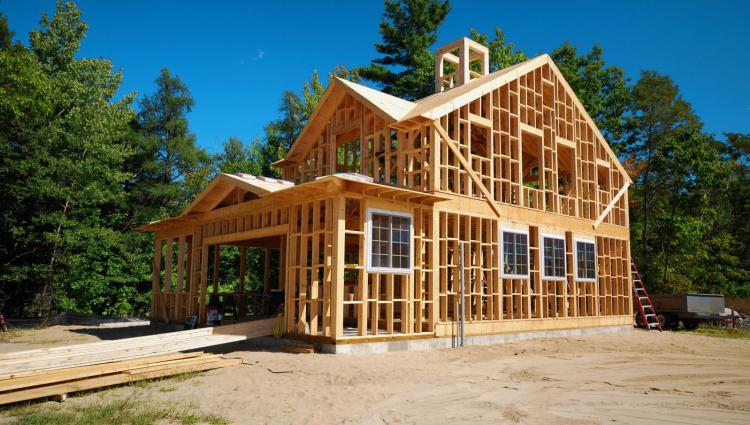
Suppose you’d like a home in a rural location, with plenty of character, and yet one foot firmly planted in the modern world. There’s only one sensible choice: it’s a barn conversion. These types of property have exploded in popularity over recent years, thanks in part to changes in the farming industry, which have seen plenty of barns go dormant.

A good barn conversion should retain plenty of the existing style and appeal of the building, while adding plenty of modern niceties. If you’re going to knock the whole thing down and start from scratch, then it’s not really a barn conversion, after all.
Let’s run through a few tips for an effective modernisation.
Make the most of the height available
One of the defining characteristics of a barn is that it’s large, with plenty of room overhead. This sense of verticality runs through the ceilings, the windows, and the doors. Ideally, you should look to make use of the existing loft, bay, and stable doors. These will allow you to create impressive views of the surrounding countryside, and to let in plenty of natural light.
Reclaim existing features
Barns, like all older properties, will have distinct visual quirks that should be accented rather than concealed. The original flooring and walls, for example, might be stripped back to the bare timber or brickwork. Structural elements, like beams, should be kept as visible as possible.
Working reclaimed materials into the redesign might help to keep the space cohesive. Items of furniture and decorative elements needn’t have come from the original building: as long as they all seem to cohere together, the effect can be stunning.
Make the most of the layout
Barns tend to be laid out differently to purpose-built homes, with large vaulted ceilings and open space being key features. Where possible, try to maintain a hands-off approach to your adaptations: make sure that as much of the original character as possible shines through.
The bedroom
In most barn conversions, you’ll find a neutral, or even pure-white colour scheme works best in the bedroom. This way, you can allow the attention to remain on those original features. A timber beam will stand out in a pastel-shaded space, especially if you’ve treated it to the right finish.
Barns tend to be awkward when it comes to storage space, which makes it essential to look for custom storage. Floor-to-ceiling bookshelves and fitted wardrobes might work wonderfully, especially if the ceiling is really height.
The kitchen
Kitchen spaces tend to benefit greatly from having high ceilings. Rustic elements like flagstones and beams might lend themselves more naturally to a vintage kitchen rather than a modern one. You might also look to incorporate structural elements into the function of the kitchen itself: if there’s already a suitable void for a big open hearth, then you might make use of it.
Go for skylights
In a barn, you’re likely to find plenty of sloped roof space overhead, which can look a little dingy if you don’t allow natural light in. This is where modern skylights work wonderfully. Since you’re going to be using so much glass in your conversion, it’s worth paying attention to the quality of the insulation being provided. Look at the BRFC ratings, and choose accordingly.







